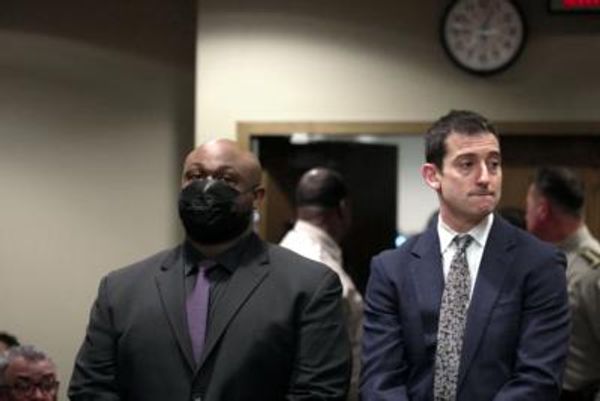
The case that launched a thousand Janet Albrechtsen columns is set to bless us with a few hundred more. Bruce Lehrmann will continue to haunt our dreams.
You will recall that Lehrmann lost his defamation case against Network Ten and Lisa Wilkinson in spectacular style, with Federal Court Justice Michael Lee’s finding that Lehrmann had raped Brittany Higgins.
Lehrmann lodged an appeal (which goes to the Full Court of the Federal Court, a three-judge bench), but had the small problem of owing the other parties $2 million in costs Lee had ordered him to pay. That order was immediately enforceable, and he has no money.
Ten and Wilkinson also wanted him to cough up an extra $200,000, as security for their costs of defending his appeal.
These issues went before Justice Wendy Abraham, who this week ruled that Lehrmann will not be shut out of running his appeal. She ordered a stay of the costs judgment and refused to order security for costs, meaning Lehrmann is free from any financial obligations until his appeal has been heard and determined. That will most likely take place early next year.
These decisions were unsurprising, in line with the basic principle that poverty should be no bar to a person having access to justice. Once the respondents had conceded that Lehrmann’s appeal isn’t completely hopeless, it would have been a radical move to shut him out at this point. Apart from anything else, everyone has already sunk so many millions into the omnishambles — what’s a few hundred thousand more between friends?
The good news is… jokes, there is no good news. The bad news is we will be subjected to yet more forensic deconstruction of what happened to Higgins, because we really haven’t had enough of that yet.
Winning on appeal is never easy and is particularly difficult against a judgment that was founded on a judge’s determinations of disputed facts and the credibility of witnesses. Appeal courts will not interfere with such findings readily, because they don’t have the advantage the primary judge enjoyed: seeing the witnesses giving their evidence in person.
Probably for that reason, Lehrmann hasn’t gone down the path of trying to overturn any of Lee’s findings about who he believed. Basically, the judge disregarded Lehrmann’s testimony altogether, saying that his “attachment to the truth was a tenuous one”. He also didn’t think highly of Higgins as a witness, but he did believe her on the critical question: whether Lehrmann raped her.
Lehrmann is targeting the finding of rape, as he must, but on a technical ground that promises an interesting appeal hearing (interesting in the legal sense, not the human one).
Ten won because the judge found it had proved that the central defamatory imputation Lehrmann had alleged was substantially true. That is, that he had raped Higgins in Parliament House in 2019.
Lehrmann’s appeal fixes not on this finding per se but the factual basis on which Lee made it; the details of the rape. He argues, essentially, that the rape the judge found had been committed was materially different in how it happened than the rape Ten had claimed happened in its defence. He says that the rape the judge found was never put to him in court (nor to Higgins), so he was denied a fair opportunity to respond to it before the judge reached his conclusion.
Really what he’s alleging is that, having spent weeks and weeks listening to the parties argue up hill and down dale over the intricacies of one rape, the judge went away and decided they were all wrong, but that a different rape altogether had taken place.
To make that clearer by analogy, it’s as if Ten had accused Lehrmann of being a thief on the basis that he had stolen a car. After a trial focused on whether that was true or not, the judge then delivered a judgment saying yes, it’s true Lehrmann is a thief, not because he stole a car but because he stole jewellery — when that allegation had never been raised before. Not that I am suggesting what Lehrmann did had any similarity to property theft (it didn’t), but I chose such a banal analogy partly to underline the artificiality of his argument.
For example, Lehrmann points to details Ten had included in its factual depiction of the rape — quite graphic physical details that we don’t need to go into — and says that the judge didn’t find that these things happened (he also didn’t find that they didn’t happen).
Lee’s factual conclusions, in a very long judgment, were refreshingly concise. They were that sexual intercourse took place on the couch; Higgins did not consent to it; and Lehrmann was reckless as to whether or not he had her consent. These are sufficient to make out the elements of the criminal offence of rape, but more importantly, they meet the common understanding of what rape is.
What’s the difference? In real terms, it’s the difference between a detailed description of an act of rape as recalled by its survivor, and the finding of the basic outlines of that rape by an objective decision-maker who didn’t feel the need to definitively conclude exactly how it played out.
I’ll comfortably predict that the appeal will fail; it’s not unarguable, but it entirely misses the point that Lee was making, his logic impeccable and solidly backed by fact.







